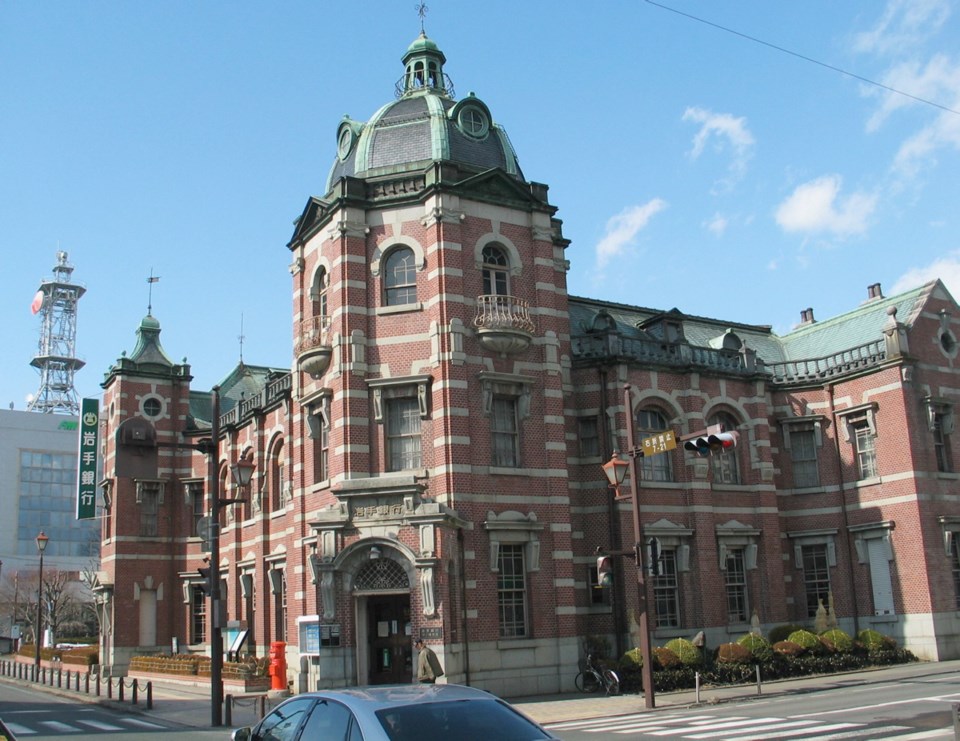When it comes to containing COVID-19, it might be impossible to do better than Morioka, Victoria’s sister city in Japan.
Morioka is the capital and largest city in Iwate prefecture, north of Tokyo. Iwate is the only prefecture with no reported cases of the coronavirus. Zero. None.
They have tested 604 people, and have had 604 negatives. Not a single positive.
I’ve been to Morioka several times because my daughter spent her first two years as a teacher in Japan working in Iwate. And yes, she went there because of Victoria’s sister city connection.
Iwate — pronounced ee-wah-tay — is Japan’s second-largest prefecture, which is basically the same as a state or a province. It is about half the size of Vancouver Island. It has more than 1.2 million people, about 350,000 more than we have on our island, but is still mostly rural.
COVID-19 is especially hard on the elderly, and Japan has one of the oldest populations on Earth, which should have put it at greater risk.
But consider Japanese culture. There is a commitment to the group over the individual. There is respect for each other and for authority — not blindly following a leader, but understanding and appreciating what needs to be done for the greater good.
Beyond that, hugs and handshakes are rare in Japan, but masks are everywhere. Restaurants encourage patrons to clean their hands before eating. Shoes are not worn in the home.
These cultural differences might explain why Japan has been able to keep the virus in check. At last count, Japan has had 16,628 cases of the coronavirus, and 851 deaths, only six per million people. (For the record, both Taiwan and Vietnam have recorded even lower numbers.)
British Columbia has had 2,530 confirmed cases and 161 deaths, or 32 per million. Canada has had 174 deaths per million.
Japan started contact tracing as soon as the coronavirus arrived, with a focus on local clusters of infections. For example: In Sendai, a city of one million south of Morioka, the local government has announced the locations of confirmed cases, given basic information about the infected person (such as male, 30s, teacher) and tested everyone who had been in contact with the person.
Sendai is in Miyagi prefecture, which has had 88 cases and one death. Miyagi is one of 46 prefectures dealing with COVID-19.
The 47th is Iwate, where the governor, Takuya Tasso, has been leading the fight against COVID-19 with regular updates to residents. He has repeatedly urged people to remain vigilant and follow “new social procedures” that might seem familiar to you. For example, Tasso has asked residents to wear masks and maintain a distance from others, ideally one metre and preferably two.
Washing of hands with soap and water should last 30 seconds, and should be followed by disinfecting with alcohol. Everyone is asked to perform a daily temperature and health check.
Iwate’s recommendations include avoiding the “three Cs” — close spaces, close contact, and crowded areas — rather than cutting off contact completely. That has allowed social activities to continue.
Most stores and restaurants remained open, but the government has asked them to limit the number of customers, to keep an eye on them, to provide hand-washing spaces and disinfectants and indoor ventilation.
Potential customers were asked to avoid peak shopping hours, avoid unnecessarily touching products, and limit the number of people shopping.
Tasso says people should refrain from non-urgent or unnecessary outings. Anyone coming to the prefecture is asked to exercise “extreme caution” in the two weeks after they get to Iwate.
People were asked to use parks when they are less crowded, and to avoid large groups. They have also been asked to avoid peak hours on public transportation, and to bike or walk more often.
The Iwate government has asked residents to “provide moral support and express gratitude to those in medical and essential services who are working hard to maintain the daily lives of all residents.”
And the good people of Iwate have been asked by the prefecture to “please remain calm and be kind to others.” Sound familiar?
“The prefecture, together with the municipalities and related organizations will be supporting daily lives, workplaces, and places of learning, ensuring that our efforts bear fruit,” Tasso said in a recent update.
“We will find the balance between preventing the spread of infection, and maintaining our social economy.”
Every jurisdiction around the world is dealing with COVID-19, and it will be important for all of us to learn from experiences elsewhere. We need to be better prepared the next time around.
The measures in Iwate were designed to prevent the spread of the virus, but the prefecture’s performance is not just about good management and healthy habits. It has had good luck as well, because so far, it seems that nobody has carried the virus into Iwate.
I would love to go back to Morioka to congratulate our sister city in person, but that’s not a good idea right now. I don’t want to be the one who arrives with a fever and breaks Iwate’s perfect record.



